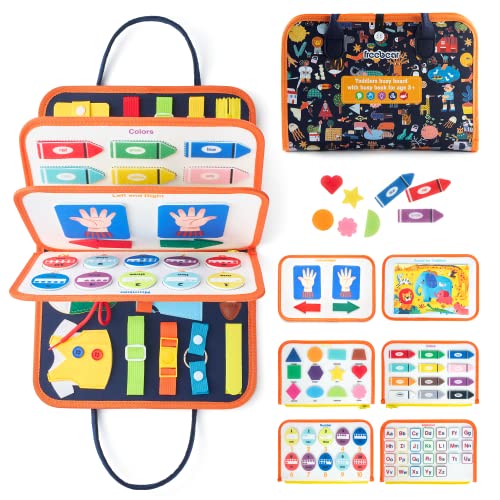In This Article Show
Are you worried about your toddler’s eating problems at daycare? Getting news of your toddler not eating at his daycare is enough reason to be disturbed about your child’s well-being. Your thoughts would be, “But he eats very well at home; what could be the issue?” You might not be aware that putting your child in daycare can make a huge difference in their behavioral pattern, and being away from you can take a toll on your toddler.
A toddler’s inability to eat at daycare can be because he has not fully adapted to the new environment, is shy of eating amongst new faces, is distracted, or has a general loss of appetite (which may indicate sickness). Having a word with your child’s care provider can proffer solutions, and assuring your toddler all the way can help your toddler feel relaxed and safe.
You are pretty sure the daycare does provide delicious meals, but your child would hardly eat or not eat at all–hold on a minute and relax– it’s very typical. About 60% of toddlers find it hard to adjust in the first few days or weeks of going to daycare.
Everything around him is strange, and everyone must earn his trust before he completely blends in. In this article, the ways you can help your toddler adjust will be explained in detail.
NEW: Can Soap Residue Make Baby Sick?
7 Tips To Help Your Toddler Eat Better At Daycare
As a general rule, some toddlers will always have difficulty adjusting to not being around you all day long. And for some reason, they could refuse to eat at daycare. Below are seven useful tips that could be beneficial to help your toddler to eat at daycare;
Great deals to snatch for your little ones 🎉
1. Stay Positive And Assure Your Toddler
Toddlers can quickly sense it when their parents have negative feelings or emotions, so it’s better to stay calm and very optimistic about the situation. But when you let the stress and emotions get the best of you your child will pick on it and it will cause the loss of appetite to intensify.
Always be cheerful talk to your toddler and ensure there is nothing to be anxious about in the new environment. Your words of assurance might be what he or she needs.
2. Cross Examine Your Child
First things first, you’ll want to make sure your child isn’t feeling sick or having any digestive problems. For instance, my toddler was lactose intolerant but I had no idea breakfast was a hard time for her until she started declining breakfast and complaining she felt sick after eating.
I had to put two and two together to understand why. Now, from my experience, you can see how important it is to pay a lot of attention to your toddler to be quite certain they don’t have food allergies or stomach problems that make them not eat at daycare.
3. Talk With Your Toddler’s Care Provider
You are going to have to meet with your child’s care provider and cross-check the meals on their menus. There’s a possibility that your child doesn’t enjoy the variety of foods on the menu, or that there’s an ingredient in the meals that he doesn’t like.
I’ve had a friend who says her toddler doesn’t want anything to do with meals that have chopped tomatoes in them. Talking with the care provider will help you have enough information about the foods and see to it that food is served to your toddler the way he prefers it.
4. Meet With Other Parents
You might not be the only parent with this issue, there could be others in the same boat as well. Have a word with them, as it could be an advantage for you to find out the techniques they applied that worked for them. Indeed, we are quite aware that every child is unique in their ways, but that doesn’t rule out the fact that another parent with a similar experience, can provide you with helpful ideas.
5. Have An Arrangement With The Daycare To Allow You to Pack Lunch For Your Toddler
If they can’t make changes to their menu, have them allow you to pack your child’s favorite lunch for him. This could be a better solution, and it might be only you who understand how your child wants his meal prepared. When it comes to snacks, prepare them with an extra filling or just the way your toddler loves them.
6. Visit Your Child At Lunchtime
If separation anxiety is the reason your toddler is refusing to eat, seeing your face can lighten up his mood. Your child isn’t well-adjusted to the new environment, so arranging to have lunch with him or her in their class could relieve some tension and give him the initiative of being comfortable with his mates. This is one of the things to discuss with the facility beforehand.
7. Do Not Overstress Or Force It
Don’t get too worked up about the new development, it is possible they are shy about eating around new people and it’s best to know that it is quite normal and very common. Give your toddler time to adjust, which will eventually happen when he starts making friends and getting acquainted with his teachers or care providers. Do not get worried everything will fall in place.
Conclusion
A lot of reasons can cause a toddler to decline food at his or her daycare, and you must be able to identify the problem to come up with adequate solutions. If the mealtime at home is different from daycare mealtime, you should consider adjusting the schedule for a better alignment, as this would help the child stay on a consistent eating routine.
Also, you have to be sure your toddler is emotionally and physically sound, as his or her inability to eat at daycare could indicate anxiety, sadness, and even an illness.
Furthermore, this article has explained other helpful recommendations for improving your toddler’s eating habits at daycare.
More Baby Guides:
- Baby Hates Formula Taste: Here’s What To Do
- My Child Hates Her Dad: Here’s What To Do
- Can Toddlers Eat Over Medium Eggs?
- My Husband Is A Lazy Parent: What Do I Do?
- Why Does My Toddler Say Mommy All The Time?
- Baby Suddenly Refusing Pacifier: Here’s What To Do
- Toddler Pants Falling Down: Here’s What To Do













